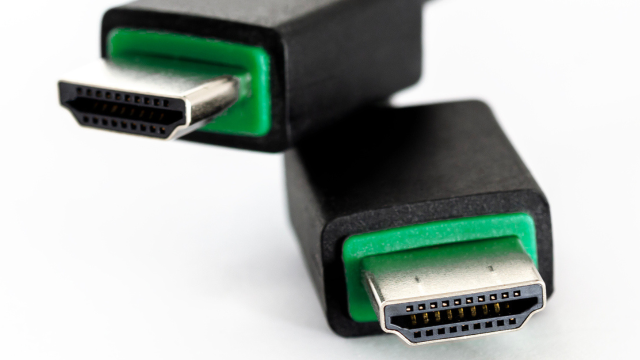If you’re anything like me who is obsessed with all things cable-related then you will very much enjoy the fact that drama is plaguing the cable community. This drama focuses on the humble HDMI cable, where the HDMI forum is blocking an open-source AMD driver update – oh no, they didn’t!
AMD was attempting to make an open-source AMD driver, particularly for Linux users as reported by Phoronix. The driver would, in practice, enable the highest speed picture to display transfer through the cable and the latest HDMI 2.1 standard (2.1 is capable of video resolutions of up to 10K, refresh rates of up to 120hz, and up to 48Gbps bandwidth), but the forum that controls the direction of HDMI development, aptly named the HDMI Forum, won’t allow it.
“The HDMI Forum has rejected our proposal unfortunately. At this time an open source HDMI 2.1 implementation is not possible without running afoul of the HDMI Forum requirements,” AMD Linux engineer Alex Deucher said in response to a customer ticket regarding the problem.
Reportedly, the drivers were working internally for AMD during testing. But without making the HDMI Forum angry, there’s no way to make it work publically.
Sadly, this means that Linux users are missing out on 4K/120hz performance with HDMI 2.1, along with AMD FreeSync over HDMI connections.
The good news is that, for the same performance, DisplayPort should still work – that is according to Linux engineer and open source analyst Michael Larabel on Phoronix.
If you Keep Up with The Cable-dashians, it shouldn’t be too surprising this has happened. In 2021, HDMI closed public specification access to HDMI specifications, and since its inception, HDMI was intended to be a consumer-oriented replacement for DVI and classic RCA connectors. This is why it’s the go-to cable for TV makers – it just works, no open sourcing-necessary.
Additionally, a big part of HDMI’s history revolves around content protection. The Intel-developed High-bandwidth Digital Content Protection (HDCP) protocol informed part of the cable’s development, ensuring that copywritten content would be protected over it. HDMI is a closed-source standard (unlike its open-standard rival Display Port) which companies need to license in order to use.
So, unfortunately, things are grim for Linux users who want to use HDMI 2.1. Hopefully, there’ll be a solution at some point.
Want more cable stories? Check out our pieces on lightning cables and ethernet cables.
Image: Gizmodo Australia
